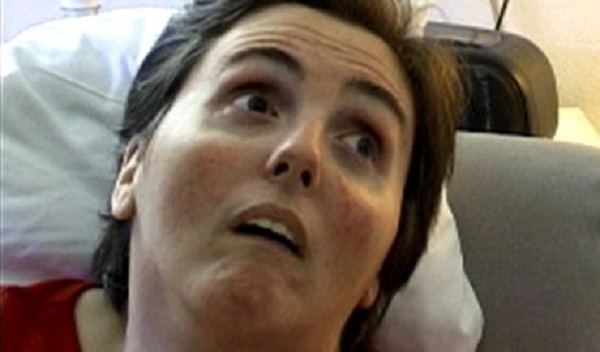More than 10 years after Terri Schiavo’s death, her family continues to fight for the rights of the medically vulnerable.
Schiavo’s brother, Bobby Schindler, spoke Friday at the National Right to Life Convention in Milwaukee, Wisconsin about Terri’s life and starvation death, and the work his family is doing to help other people like her.
“We are here today because this continues to happen to this day and it’s only getting worse,” Schindler said. There are times when it is “appropriate to stop treatment, but in cases like Terri’s, those that are not dying and can function on a feeding tube without rejecting it, those are the people we’re talking about.”
Today, he runs the Terri Schiavo Life & Hope Network, which has helped more than 2,000 families advocate for loved ones’ medical treatment when hospitals or other individuals try to deny them care.
“Our medical rights are eroding,” he continued. “We’re having strangers make medical decisions for us rather than our families.”
Schindler said there still is a lot of misinformation about his sister’s highly publicized death, perpetuated by the mainstream and entertainment media.
He said they still do not know the reason why Terri collapsed on Feb. 25, 1990, but she had a cardiac episode that blocked oxygen to her brain and caused brain damage.
He said Terri had serious brain injuries, but she was not dying or brain dead. He said she was not hooked up to machines on life support; the only thing she needed was a feeding tube. Schindler said Terri showed signs of improvement when she was undergoing therapy and, at one point, even began forming words; but her husband, Michael Schiavo, discontinued rehabilitation and therapy after two years.
Schindler said his sister was not bedridden, and they sometimes took her in a wheelchair to the movies and other places. The family even took a video of Terri responding to a neurologist’s voice. He said people can find it on YouTube by looking up “Terri Schiavo opens her eyes.”
Schindler and his parents went through a long court battle to keep Terri’s care in place, and even the governor, president and pope became involved. But a judge allowed her husband, Michael Schiavo, to have her feeding tube removed. In 2005, she slowly and torturously starved to death, and her parents and siblings were unable to protect her, Schindler said.
Keep up with the latest pro-life news and information on Twitter. Follow @LifeNewsHQ
Cases like Terri’s continue to happen today.
“It’s worse. Terri’s case … is a progression of what’s happening in our health care system today,” Schindler said, citing money as a key factor.
He said all 50 states allow people to be denied food and hydration through a feeding tube. He brought up a recent Oregon bill that would allow hospitals to deny even spoon feeding to a patient.
The classification persistent vegetative state, or PVS, a label that Terri Schiavo was given, is hugely problematic, he said. Schindler said the PVS classification is subjective, and a number of studies have found that it is misdiagnosed 40 percent of the time or even more often.
If a patient is labeled or mislabeled PVS, he said many insurance companies will stop paying for their rehabilitation. This puts many low- and moderate-income families in extremely difficult positions because they cannot afford to pay for their loved one’s rehabilitation and therapy out of pocket, Schindler said.
Overall, Schindler said many doctors and bioethicists have adopted policies that devalue human lives, especially unborn babies, the elderly and people with disabilities. He emphasized that there still are many good doctors and medical facilities, but there is a growing trend of putting costs above vulnerable patients’ lives.
“There certainly is a shift that’s occurring, and their best interest is their bottom line rather than their patients … and that’s what is governing a lot of their decisions today,” Schindler said.
He said starving is not a peaceful way to die, and it is a felony to dehydrate or starve an animal to death. Yet, society allowed his sister to die that way.
Schindler related how heart-wrenching it was to watch Terri slowly dehydrate and die over the course of two weeks. He said her lips cracked and skin became jaundiced, her breathing was rapid and uncontrollable and her face became skeletal.
“It was a nightmare,” he said.
Since then, he has heard of thousand of other cases like his sister’s. Schindler said a young man named Brenden Flynn was seriously injured in a vehicle accident several years ago, and medical professionals told his mother to just “let him die.”
Schindler said Flynn’s mother fought for her son, and, as a result, today Flynn is living a normal life. He has a wife and three children, and he now shares his inspirational story at high schools, he said.
In other cases, Schindler said his organization has been involved in cases where the hospital put a “do not resuscitate” order in a loved one’s file without the family’s knowledge or consent.
Schindler urged individuals to research and understand their rights involving medical care. He urged families to be persistent in fighting for their loved ones’ care, because many may have to in the future.
“The best way to protect ourselves is to understand our rights and be advocates for patients,” Schindler said.








